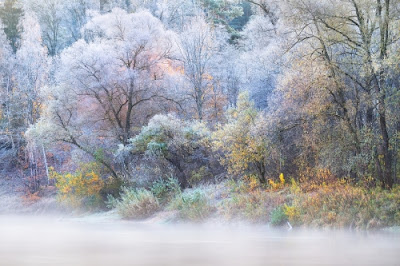Last Sunday the gospel tax collector had no name. Today the featured tax collector is named Zacchaeus. And Zacchaeus, we're told, "sought to see who Jesus was." This suggests he's not just caught up in the crowd's enthusiasm, but he's interested in Jesus. Perhaps he's heard of Jesus' teaching or reports of Jesus' miracles.
But he's short and so runs ahead and climbs a sycamore tree in order to get a better view. The Sycamore tree is mentioned only this once in the New Testament, so we ought to pay attention to its meaning. Sycamores appear in the stories of ancient gods and goddesses. They symbolize growth, the pursuit of truth, bounty, protection and redemption. To understand the wisdom of the gods, the sycamore must be climbed mystically. And so here is Zacchaeus climbing the Sycamore to see Jesus.
We can imagine that Zaccaheus took a ribbing from others because he was short. But that doesn't stop him from running and climbing the tree. I'd say the evangelist Luke intends that we find the scene funny: this little rich guy, running in cumbersome robes, balancing himself on a branch hanging over the road and peering out through the leaves. Kind of silly: "Zacchaeus, you're ridiculous." Zacchaeus, you look like a fool." "Zacchaeus, you're pathetic."
Jesus knows he's up in the tree. He also knows what's on the the tax collector's mind. And instead of rolling his eyes and laughing at him, Jesus calls him to come down and invites himself to dinner. In the Middle-Eastern world, dinner was an occasion of great intimacy and friendship. Jesus seems to reward Zacchaeus for taking the risk of looking ridiculous for his sake.
Matthew Kelty was a Trappist monk of the Abbey of Gethsemani in Kentucky. At one point in his monastic life he was given permission to try an experimental community of six monks living in the greatest simplicity in the woods of Piedmont, North Carolina. Seven miles from town, the monks set out to create an environment of deep, prayerful serenity. They maintained the meatless diet of Trappists as a witness to non-violence and otherwise grew their own food. They learned weaving to make a living and welcomed numerous guests despite the rugged, no-frills lifestyle of the place. Needless to say, there were more than a few people who thought the monks were ridiculous, giving up the securities that come with living in a large, established monastic house.
Here's a section from Matthew Kelty's book Flute Solo, in which he describes a new depth of a Zacchaeus-like foolishness for a greater good or truth:
What creative monks - like Zaccaheus! But every Christian can do something ridiculous so to pursue wisdom, truth, goodness, redemption (which is not the same as going to heaven). Any ideas?
We can imagine that Zaccaheus took a ribbing from others because he was short. But that doesn't stop him from running and climbing the tree. I'd say the evangelist Luke intends that we find the scene funny: this little rich guy, running in cumbersome robes, balancing himself on a branch hanging over the road and peering out through the leaves. Kind of silly: "Zacchaeus, you're ridiculous." Zacchaeus, you look like a fool." "Zacchaeus, you're pathetic."
Jesus knows he's up in the tree. He also knows what's on the the tax collector's mind. And instead of rolling his eyes and laughing at him, Jesus calls him to come down and invites himself to dinner. In the Middle-Eastern world, dinner was an occasion of great intimacy and friendship. Jesus seems to reward Zacchaeus for taking the risk of looking ridiculous for his sake.
Matthew Kelty was a Trappist monk of the Abbey of Gethsemani in Kentucky. At one point in his monastic life he was given permission to try an experimental community of six monks living in the greatest simplicity in the woods of Piedmont, North Carolina. Seven miles from town, the monks set out to create an environment of deep, prayerful serenity. They maintained the meatless diet of Trappists as a witness to non-violence and otherwise grew their own food. They learned weaving to make a living and welcomed numerous guests despite the rugged, no-frills lifestyle of the place. Needless to say, there were more than a few people who thought the monks were ridiculous, giving up the securities that come with living in a large, established monastic house.
Here's a section from Matthew Kelty's book Flute Solo, in which he describes a new depth of a Zacchaeus-like foolishness for a greater good or truth:
During our years in the Piedmont there was a great deal of anguish in the country over the war in Vietnam. Our concern was both with the lack of strong protest from the Catholic Church and the need to stress the monk as man identified with peace. We felt that many monks were insensitive to the moral implications of genuine patriotism. A lot of discussion led to a small decision; to have the phone removed. We had learned that the phone tax was a specific war tax, and perhaps the only one. Though we could have refused to pay it, we decided to go a step further and dispense with the phone altogether. Doing so turned out to be a blessing. It was sometimes an inconvenience, but we had peace. A six-foot wall around the place would not have assured us more privacy.
What creative monks - like Zaccaheus! But every Christian can do something ridiculous so to pursue wisdom, truth, goodness, redemption (which is not the same as going to heaven). Any ideas?




























